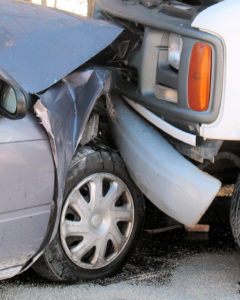Distracted Driving Awareness Month
April 1, 2022 by Jean Humbrecht
April is Distracted Driving Awareness Month. Distracted Driving Awareness Month promotes safe driving habits and educating people on the dangers of driving while distracted. Many organizations focus on promoting distraction-free and safe driving during Distracted Driving Awareness Month every year.
Car accidents are increasing every year in Virginia and throughout the country, as well injuries and fatalities resulting from these accidents. A major contributor to these accidents is distracted driving. Distractions can come from cell phones, in-vehicle technology, passengers, driving under the influence, eating or drinking while driving, grooming, adjusting music or volume, being tired, and stress, among many other things. Additionally, teenagers are at an even higher risk of being in a car crash as a result of using cell phones while driving and other distractions.
Click here to learn more about the causes of distracted driving in Virginia.
Distractions While Driving
There are four types of distractions that could cause hazards while driving: visual distractions, auditory distractions, manual distractions, and cognitive distractions.
Visual distractions are caused by something taking our eyes off of the road, such as a cell phone or a distraction on the side of the road. Auditory distractions are distractions that we are listening to instead of focusing on driving. Manual distractions include doing something with a person’s hands, such as dialing a phone or reaching for food. Cognitive distractions include thoughts that are not related to driving. For more information on the different types of distracted driving, read this article from National Today.
Cell Phones are a Major Contributor to Distracted Driving-Related Accidents


Distracted Driving Awareness Month Promotes Safe Driving Habits
Cell phones are a major contributor to traffic crashes. It is hard to estimate the number of car crashes caused by distracted driving from using cell phones, because this would require a person to report that he or she was using a cell phone while driving after being involved in an accident. Studies show that even if drivers are looking at the road while talking on a cell phone and do not have the phone in their hands, they are still less likely to see the road and potential hazards because they are not entirely focused on driving.
Many people are lulled into a false sense of security with technology because vehicles now come equipped with features that supposedly promote safety. This technology includes the ability to have the vehicle read out loud an incoming text or to call a number using bluetooth so the driver does not have to take his or her eyes off of the road to look at his or her phone, search for a number, and dial.
Additionally, safety features such as rear cameras, motion-activated lights on mirrors, and GPS may provide more safety in some ways. However, relying on technology that could fail or taking one’s eyes off the road to look at a map may take drivers’ attention away from the road and hence from potential hazards.
Virginia has recently enacted a law prohibiting using a cell phone while driving. It bans drivers from having a cell phone or personal communication device of any kind in their hands while driving. This is frequently called the Texting While Driving law. Click here for more information on using handheld personal communication devices while driving.
Preventing Distracted Driving
There are many ways drivers can reduce dangers associated with distracted driving. These preventative measures include using cell phone blocking apps that prevent incoming or outgoing calls or texts, pulling over to make a call or send a text message, having a another person in the vehicle send or respond to a text, putting the phone away while driving so it cannot be easily reached, maintaining the speed limit, avoiding impaired driving, and continuing to look in rearview mirrors and blind spots instead of solely relying on technology, among many other things.
***DISCLAIMER: THE MATERIAL AND INFORMATION CONTAINED IN THIS POST, ON ANY PAGES ON THIS WEBSITE, AND ON ANY PAGES LINKED FROM THESE PAGES, ARE FOR GENERAL INFORMATION ONLY AND NOT LEGAL ADVICE. YOU SHOULD CONSULT A LICENSED ATTORNEY IN YOUR JURISDICTION BEFORE RELYING ON ANY OF THE INFORMATION CONTAINED ON THESE PAGES. SENDING EMAIL TO OR VIEWING INFORMATION FROM THIS WEBSITE DOES NOT CREATE AN ATTORNEY-CLIENT RELATIONSHIP***
![]()
![]()
![]()
![]()
![]()
![]()
![]()
![]()
![]()
![]()
![]()
![]()





